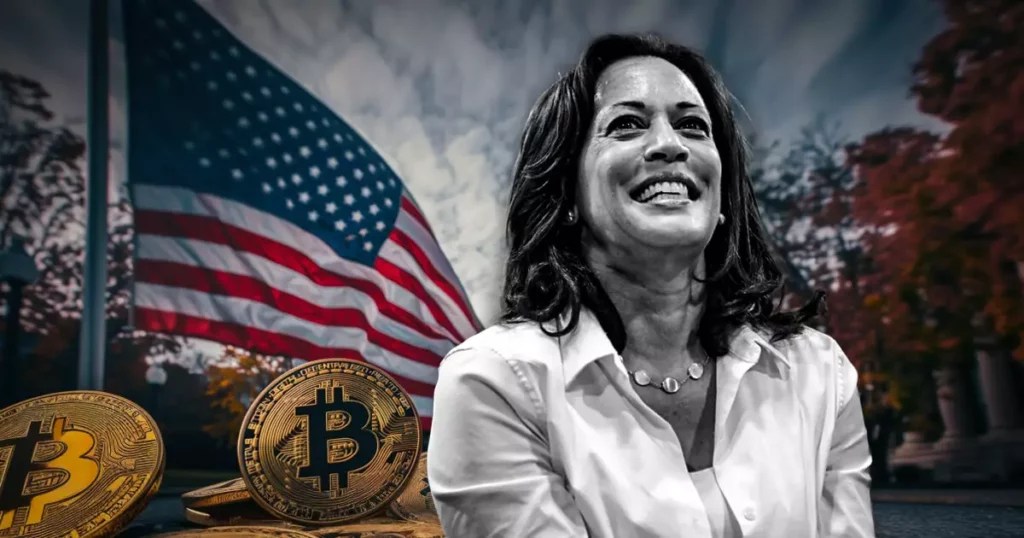As the 2024 presidential election continues to unfold, the implications of potential candidates’ policies on the burgeoning cryptocurrency sector are becoming a focal point for analysts and investors alike. Alex Thorn, head of research at Galaxy Digital, has provided a detailed ‘policy scorecard’ that encapsulates the stances of various candidates towards the crypto industry. The analysis reveals significant contrasts particularly between Vice President Kamala Harris and former President Donald Trump, making it imperative to understand these nuances as they could shape the future landscape of cryptocurrency regulation in the United States.
Implications of Policy Directions
Thorn’s scorecard posits that a Harris victory could present limited risks to the crypto landscape, suggesting that her policies may offer a more favorable environment compared to those of the current administration led by President Biden. Harris’s approach appears to be an evolution rather than a revolution—an analysis that indicates an enthusiasm for exploring avenues that might foster a more accommodating regulatory environment. In contrast, Trump is depicted as a pro-crypto figure, poised to enhance clarity and support for the industry, particularly concerning issues that have historically created friction between lawmakers and cryptocurrency advocates.
Upon examining the specific areas where Harris and Trump diverge significantly, four core issues emerge: taxation, Bitcoin mining, banking access, and self-custody rights. On taxation, for instance, Thorn highlights Harris’s campaign promises to rescind tax cuts implemented by the Trump administration, which raises concerns about an increasingly adversarial stance toward cryptocurrency. Trump, on the other hand, is expected to offer greater transparency in digital asset taxation, potentially encouraging investment and innovation in this sector.
When it comes to Bitcoin mining, the stakes are similarly differentiated. Under Biden’s proposed framework—a hefty 30% tax on mining operations—Harris seems more lenient, although she still maintains a somewhat hostile posture compared to Trump, who openly advocates for the recognition of mining as a domestic manufacturing activity. This distinction is vital, as it could influence miners’ operational decisions and potentially reshape the mining landscape domestically.
Banking regulations constitute another critical point of contention. Recent conversations suggest Harris may distance herself from Biden’s stringent “Operation Chokepoint 2.0,” recognizing that the crypto sector requires access to traditional banking services to thrive. In stark contrast, Trump has made enthusiastic claims about dismantling this initiative entirely, endorsing an environment where banks can partner with blockchain technologies. His skepticism toward a central bank digital currency (CBDC) further underscores his commitment to allowing decentralized finance to flourish unencumbered by government intervention.
The Convergence on Self-Custody Rights
While the differences are pronounced, there appears to be a degree of convergence on self-custody rights. Harris’s lack of clarity on the issue, coupled with her advisors’ previous hostile remarks, juxtaposes starkly with Trump’s moderate endorsement of self-custody during public engagements. This inconsistency serves as a reminder of the complexities hidden within political platforms and the nuanced positions that can often get lost in broader campaign messaging.
Bitcoin vs. Altcoins: A Diverging Perspective
Interestingly, while Bitcoin (BTC) seems insulated from severe regulatory changes regardless of which candidate emerges victorious, the prospects for altcoins amplify FOMO and excitement in the market. Under a Trump presidency, there could be a renaissance of regulatory clarity, enabling altcoins to potentially thrive against Bitcoin’s established dominance. Conversely, a Harris administration might engender new challenges for altcoin investors, leading to a careful reevaluation of asset allocations in investment portfolios.
The Outlook: A Delicate Balance
As outlined by Galaxy Digital’s research, the stakes are disproportionately higher for altcoin investors depending on which candidate assumes office. While Trump’s unfettered support could yield substantial opportunities, Harris’s policies may present a landscape of cautious optimism, particularly against the backdrop of higher expectations than the current administration. The totality of Thorn’s findings underscores a pivotal moment for the cryptocurrency industry in America, one that investors should watch closely as the electoral currents take shape. As the election draws nearer, the crypto community must prepare for a range of potential outcomes, crafting strategies that can either leverage favorable conditions or withstand regulatory headwinds.

















Leave a Reply